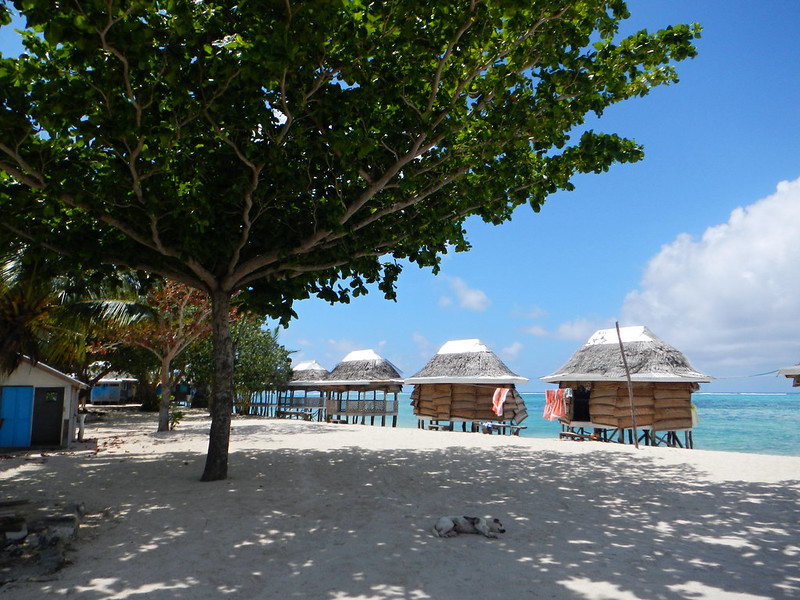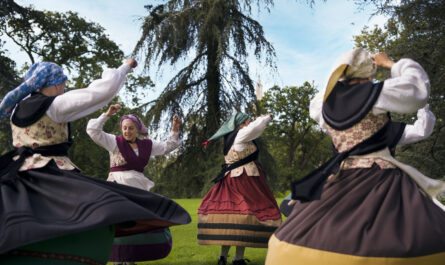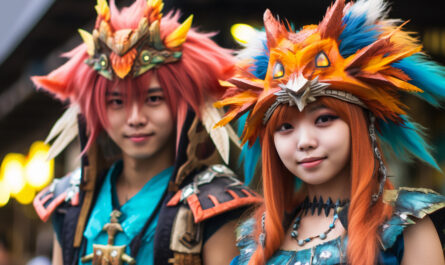The Samoan culture, known as Fa’a Samoa (the Samoan way), is one of the oldest and most well-preserved Polynesian cultures in the world. Deeply rooted in communal values, respect for elders, and harmonious living, Samoan traditions have stood the test of time despite external influences and globalization. This article delves into the core aspects of Samoan culture, exploring its rich rituals, vibrant traditions, and deeply connected community life.
1. The Foundations of Fa’a Samoa: Community and Respect
The Concept of Fa’a Samoa
Fa’a Samoa translates to “The Samoan Way” and encapsulates the traditional customs, beliefs, and practices that govern everyday life. It emphasizes respect (fa’aaloalo), family (aiga), and service to the community.
- Hierarchy and Respect: Respect is a cornerstone of Samoan culture, particularly towards elders, chiefs, and religious leaders.
- The matai system (chiefly leadership) dictates governance within villages and families.
- Younger members of the community are expected to defer to elders and seek their guidance.
- The Role of the Aiga (Extended Family):
- Families are tightly knit, often encompassing multiple generations.
- The collective well-being of the family takes precedence over individual needs.
- Decisions are made with consensus, reflecting communal values.
Communal Living
Life in Samoa revolves around shared responsibilities and mutual support. Villages function as extended families, with everyone contributing to tasks such as fishing, farming, and caring for children or the elderly. This interconnectedness fosters a sense of belonging and ensures that no one is left behind.
- The Village Fono: Village councils (fono) led by matai govern local affairs, maintain law and order, and mediate disputes.
- Ceremonial Gatherings: Rituals and celebrations bring the community together, reinforcing bonds and cultural pride.
2. Samoan Rituals: A Window into Spiritual and Social Life
Religious Ceremonies
Samoan spirituality is a blend of pre-Christian traditions and Christian practices introduced by missionaries in the 19th century. Today, Christianity plays a significant role in Samoan rituals, often intertwined with traditional customs.
- Sunday Worship: Known as Aso Sa, Sundays are sacred and reserved for church services, family gatherings, and rest.
- Lotu Tamaiti (White Sunday): A special day celebrating children, marked by performances, feasts, and prayers.
Traditional Rituals
Pre-Christian Samoan rituals focused on nature, ancestors, and spiritual balance. Although Christianity has largely replaced these practices, echoes of traditional rituals remain in modern ceremonies.
- Tattooing Rituals (Tatau):
- The tatau (traditional tattoo) is a rite of passage for Samoan men, symbolizing bravery, service, and cultural pride.
- Women also undergo tattooing (malu), signifying grace and protection.
- Funeral Practices:
- Death rituals are elaborate, reflecting respect for ancestors and the deceased.
- Families host large gatherings, where food, songs, and prayers honor the departed.
Cultural Festivals
- Teuila Festival: A celebration of Samoan culture featuring traditional dances, canoe races, and the preparation of local dishes.
- Fire Knife Dance: A mesmerizing performance that highlights Samoan warrior traditions.
3. Samoan Traditions: Dance, Music, and Storytelling
Traditional Dances
Dance is a vital aspect of Samoan culture, serving as a medium for storytelling, celebration, and preserving history.
- Siva Samoa: The traditional Samoan dance characterized by graceful movements and expressive gestures. It narrates stories of love, nature, and daily life.
- Taualuga: Performed at the end of significant events, this dance is a mark of respect and is led by a matai or a high-ranking individual.
Music and Instruments
Samoan music is deeply intertwined with its cultural identity, often accompanying dances and rituals.
- Traditional Instruments:
- Pate (wooden drum): Sets the rhythm for dances and ceremonies.
- Conch Shell: Used to announce gatherings or signal special occasions.
- Contemporary Influence: Samoan music today blends traditional rhythms with modern genres like reggae and hip-hop, reflecting the dynamic nature of Samoan culture.
Oral Tradition and Storytelling
The art of storytelling, known as fa’agogo, is central to Samoan culture. Elders recount myths, legends, and historical events, ensuring the transmission of cultural knowledge across generations.
- Legends of the Samoan Gods: Stories about Tagaloa (creator god) and Sina (goddess of the moon) connect the Samoan people to their spiritual heritage.
- Historical Accounts: Oral histories document the migration and settlement of Samoans across the Pacific, preserving their identity as master navigators.
4. Community Life: Celebrations and Daily Practices
Village Life
Life in a Samoan village revolves around cooperation, tradition, and collective progress.
- Faletele (Traditional Meeting Houses):
- These open-sided structures are communal spaces for gatherings, ceremonies, and discussions.
- They symbolize unity and transparency in decision-making.
- Daily Activities:
- Farming and fishing remain primary sources of livelihood.
- Women play crucial roles in crafting, weaving mats, and preparing meals for extended families.
Festive Gatherings
Celebrations are grand and inclusive, showcasing the spirit of Fa’a Samoa.
- Weddings:
- Traditional Samoan weddings feature elaborate feasts, dances, and blessings.
- The exchange of fine mats (ie toga) is a symbolic gesture of respect and unity.
- Birth Ceremonies:
- Welcoming a newborn involves blessings, family feasts, and the bestowing of meaningful names.
Traditional Cuisine
Samoan cuisine reflects its connection to the land and sea, with meals being a communal affair.
- Umus (Earth Ovens):
- Food is cooked in an underground oven, infusing it with rich, smoky flavors.
- Staple Dishes:
- Palusami: Coconut cream wrapped in taro leaves.
- Oka: Raw fish marinated in lime juice and coconut milk.
5. Challenges and Modern Influences on Samoan Culture
Preservation Amid Modernization
Globalization has brought significant changes to Samoa, introducing modern lifestyles and values. However, the essence of Fa’a Samoa continues to thrive.
- Impact of Urbanization: Younger generations moving to urban areas often face challenges in maintaining traditional practices.
- Cultural Revival Programs: Initiatives like language preservation and traditional arts workshops ensure that Samoan heritage remains vibrant.
Adapting to Change
Samoan culture has shown remarkable adaptability, blending traditional practices with contemporary elements.
- Diaspora Communities: Samoans living abroad actively promote their culture through festivals, social media, and local organizations.
- Tourism and Sustainability: Cultural tourism offers opportunities for economic growth while fostering pride in traditional practices.
Conclusion
Samoan culture, deeply rooted in Fa’a Samoa, is a testament to the enduring power of tradition, respect, and community. From intricate rituals and captivating dances to a profound connection with family and spirituality, the Samoan way of life offers a model for harmonious living. Despite the challenges of modernization, Samoans continue to preserve their cultural heritage, ensuring that future generations can celebrate and cherish this rich legacy.
For those who visit Samoa, immersion in its culture is an unforgettable experience, offering insights into a way of life that values connection, tradition, and the collective spirit. Fa’a Samoa is more than just a way of life; it is a beacon of resilience and cultural pride in an ever-changing world.



